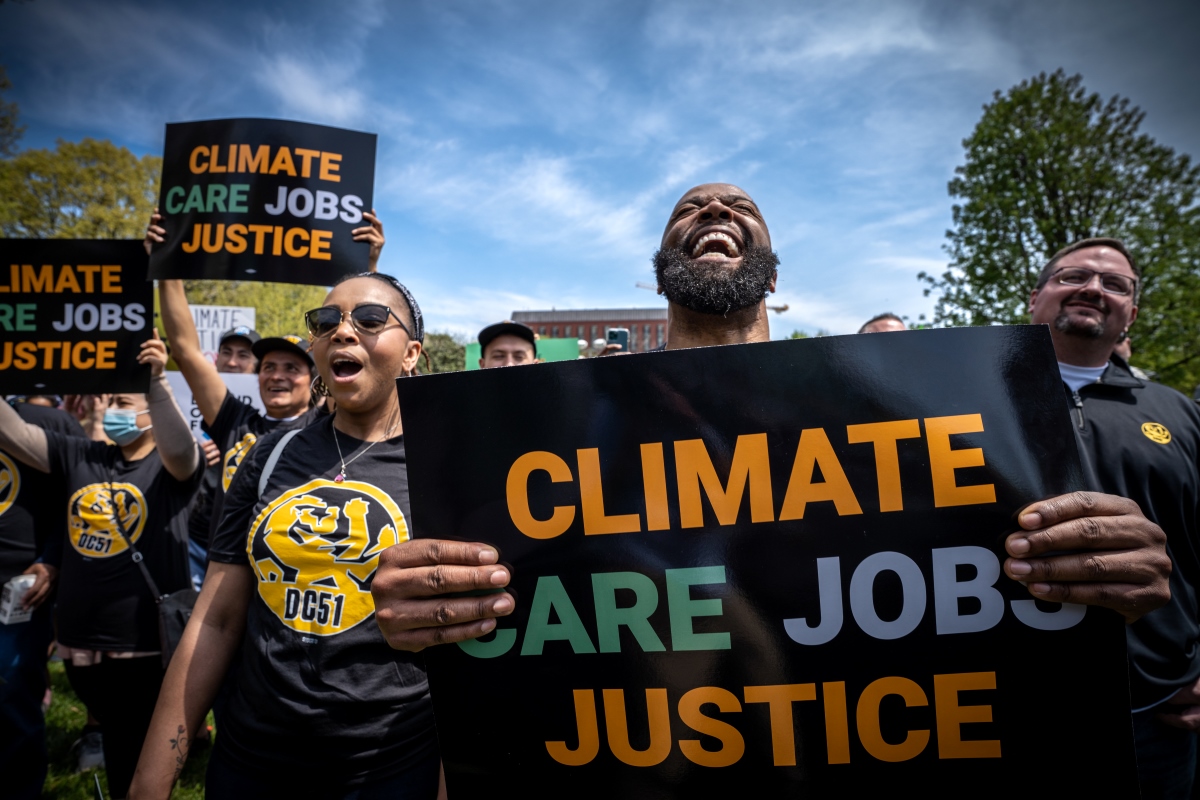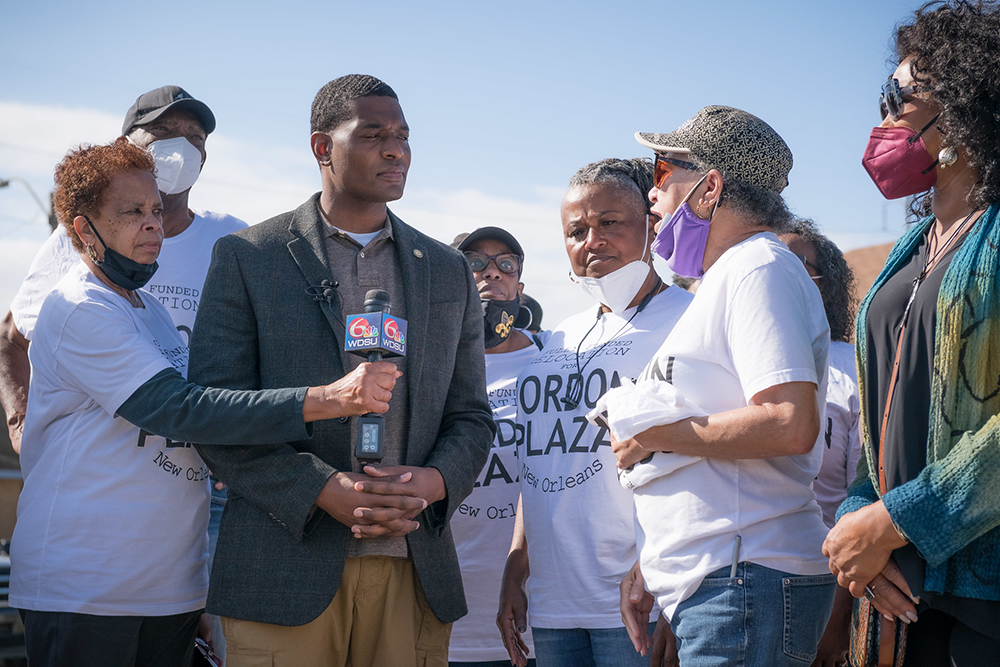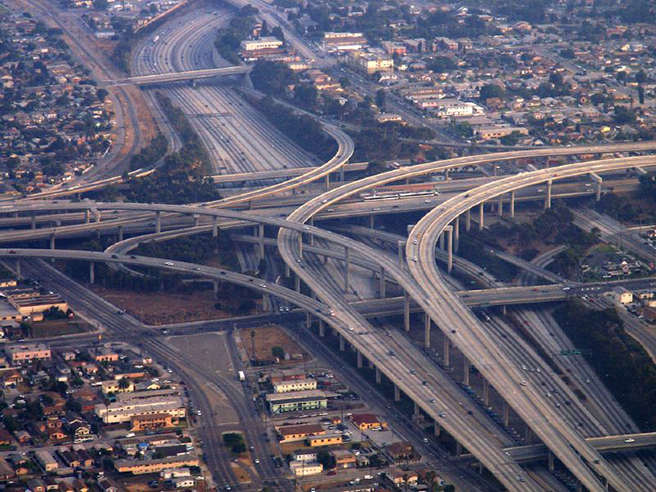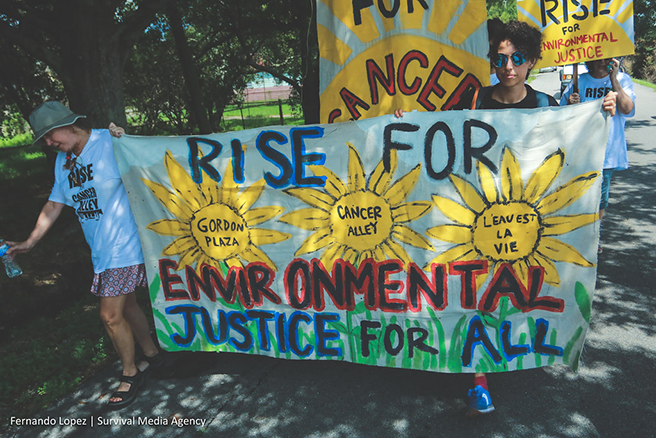
On Juneteenth, A Stark Look at Federal Environmental Justice Rollbacks – and an Opportunity to Push Back
Jun 19, 2025
 EPA Administrator Michael Regan, center, speaks with a group of environmental justice activists in New Orleans, Louisiana during his 2021 Journey to Justice tour of communities impacted by pollution and climate change. Credit: US EPA, Flickr
EPA Administrator Michael Regan, center, speaks with a group of environmental justice activists in New Orleans, Louisiana during his 2021 Journey to Justice tour of communities impacted by pollution and climate change. Credit: US EPA, Flickr
Juneteenth commemorates the day in 1865 when the last enslaved people in the U.S. received the news of their emancipation, four and a half years after President Lincoln issued the Emancipation Proclamation. Long celebrated in Black communities as a day commemorating Black freedom, June 19th was declared a federal holiday by President Biden in 2021.
President Biden in his proclamation declaring Juneteenth a federal holiday.
As acknowledged by President Biden in his remarks declaring Juneteenth a federal holiday, the fight for equity, equality, and justice is ongoing. The administration also recognizes that this fight includes the fight for environmental justice, and has made advancing environmental justice a cornerstone of their work. During President Biden’s first week in office, he signed Executive Order 14008, the “Executive Order on Tackling the Climate Crisis at Home and Abroad,” which introduced the Justice40 Initiative. The largest ever U.S. national commitment to environmental justice, Justice40 requires that at least 40% of the benefits from federal investments in infrastructure and climate go to communities that have been historically excluded and overburdened by pollution, including Black, Indigenous, Latine, and low-wealth communities.
Communities of color, including Black communities, and low-wealth communities have historically experienced, and continue to experience, disproportionate levels of pollution in the areas where they live. These communities, known as Environmental Justice, or EJ, communities, are more likely to live near highways and polluted sites or polluting facilities, and have much higher rates of cancer, and respiratory and other illnesses caused by pollution than White communities. Some examples of EJ communities include Cancer Alley, an 85-mile stretch of the Mississippi River between Baton Rouge and New Orleans that is home a majority Black population and 200 fossil fuel and petrochemical operations, and communities living in the poverty-stricken, majority Black and Brown Gulf Coast of Texas, home of the largest oil refinery in North America.
None of this is an accident. For decades, government agencies and corporations have purposely built highways, polluting facilities, and waste sites in these communities in a phenomenon that has come to be known as environmental racism or environmental injustice. Justice40 aims to address the decades of underinvestment and intentional, racist policies and decisions that have created a legacy of environmental injustice in these communities.
 Credit: Storm Crypt, Flickr
Credit: Storm Crypt, Flickr
Across the country today, we are working to build a clean energy future that puts equity at its core. This means that communities that have historically been shut out from government services, investments, and decision-making, and overburdened by pollution and its health impacts must be meaningfully engaged, and policy must be designed to intentionally address these disproportionate impacts. The Biden-Harris administration has made the most significant commitment to environmental justice of any administration in history and is working to ensure that, as we work to build our clean energy future, we do it in a way that is equitable and just.
President Biden, Earth Day 2022.
The Justice40 Initiative is bringing funding for “clean energy and energy efficiency; clean transit; affordable and sustainable housing; training and workforce development; the remediation and reduction of legacy pollution; and the development of critical clean water infrastructure” to EJ communities nationwide. Here are some examples of how Justice40 funding is advancing environmental justice across the country.
As part of the Justice40 Initiative, the Environmental Protection Agency (EPA) has opened billions of dollars in environmental justice grants for projects to advance environmental justice in overly polluted communities, including:
Justice40 is bringing funding to EJ communities for a variety of clean energy projects that will help reduce pollution, and create good paying, clean energy jobs for those communities in the process. Some examples include:
Justice40 is funding efforts to lower emissions from the transportation sector that disproportionately contribute to the overpollution burden experienced by EJ communities, as well as funding projects to improve transportation infrastructure and create more walkable cities. Some examples include:
President Biden’s Justice40 Initiative is spurring billions of dollars in public and private investment benefiting communities that have long been overburdened by pollution and the impacts of the climate crisis. These examples provide a small glimpse into the enormous scale of these investments and the work being done to build a just and equitable clean energy future.
 Credit: Fernando Lopez, Survival Media Agency from 350.org on Flickr
Credit: Fernando Lopez, Survival Media Agency from 350.org on Flickr
Racial justice and climate justice are inextricably linked; we can’t have one without the other. We must protect the federal programs and funding that are advancing both in EJ communities nationwide under President Biden’s affordable clean energy plan. These programs and investments are bringing tangible and transformational benefits to communities, but extreme Republicans have already made several attempts to cut these important programs. This Juneteenth, we are celebrating the Biden-Harris administration’s monumental progress in environmental justice – and looking ahead to the work still to come.